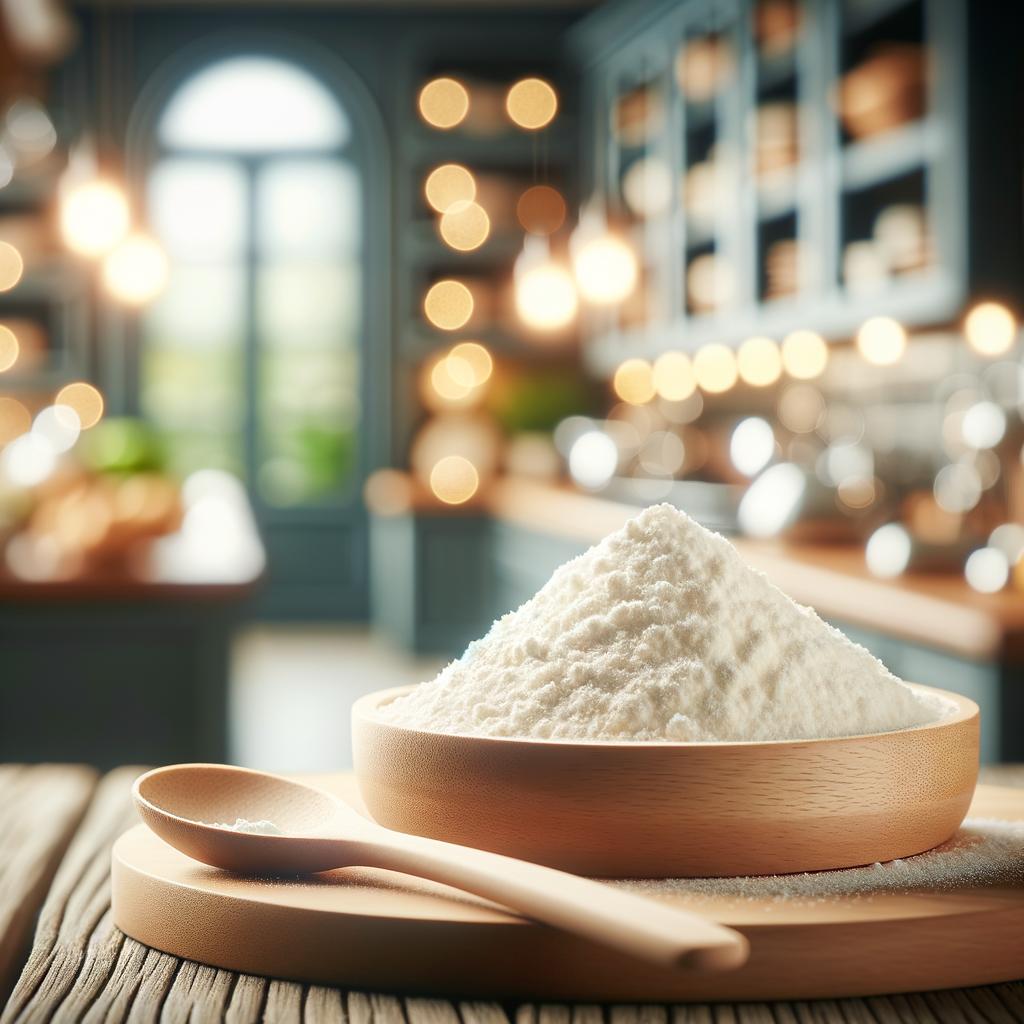Cornstarch

Description
Cornstarch, also known as maize starch, is a fundamental ingredient that graces kitchens worldwide. This fine, white powder is derived from the endosperm—the heart—of a corn kernel. Its appearance is similar to powdered sugar, but its texture is much silkier, almost like a soft cloud. It is flavorless, allowing it to seamlessly blend into the dishes it's added to without altering their taste. The magic of cornstarch lies in its unique thickening ability, setting it apart from similar ingredients like flour or arrowroot. When heated, the starch molecules in cornstarch swell, creating a gel-like consistency that thickens sauces, soups, and gravies.
Primary Uses
Cornstarch is a culinary chameleon, adapting to a myriad of dishes across a variety of cuisines. In Asian cooking, it's often used to create a velvety texture in stir-fries or to thicken sweet-savory sauces. In Western cuisine, it's a common addition to gravies, pie fillings, and custards. Bakers use it to prevent their fruit pies from becoming too runny, and it's a key component in making light and crispy fried chicken. Beyond the kitchen, cornstarch has non-culinary uses too—it's used in cosmetics, for starching laundry, and even in eco-friendly plastic alternatives.
History
Cornstarch has a fascinating history that dates back to the ancient civilizations of the Americas, where corn was worshipped and revered. It was first produced in the United States in 1840, by a man named Thomas Kingsford, while working in a wheat starch factory. The invention of cornstarch revolutionized the culinary world, offering a new way to thicken dishes without the use of eggs or flour. Over time, its use has evolved and expanded, making it an indispensable pantry staple. It's even wrapped up in folklore—some cultures believed that carrying a pouch of cornstarch could absorb negative energies!
Nutritional Information
While cornstarch may not be a nutritional powerhouse, it does offer some benefits. It's a source of calories for quick energy and is naturally gluten-free, making it a safe thickening agent for those with gluten intolerances. It's low in protein and fat but high in carbohydrates, specifically complex carbs, which can provide sustained energy. However, it's important to consume cornstarch in moderation, as it's high in calories and can spike blood sugar levels. Compared to similar ingredients like flour, cornstarch has double the thickening power, meaning you can use less of it in your cooking.
Cornstarch is a testament to the beauty of simplicity in food, transforming humble dishes into culinary masterpieces with its delicate touch.

